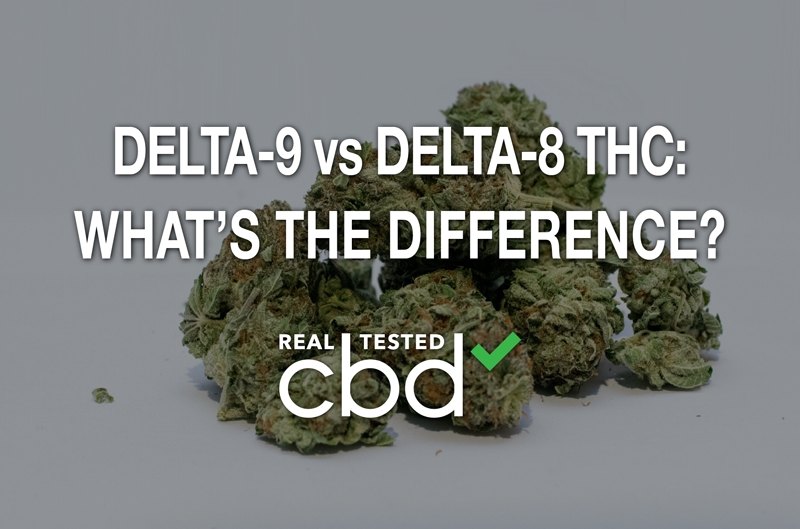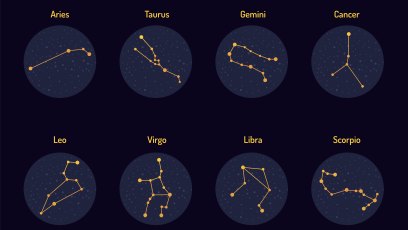
Sponsored ContentDelta-9 vs Delta-8 THC: What’s the Difference?
There’s a new cannabinoid gaining popularity, and you might be wondering about it. Delta-8 THC is a cannabis-derivative that’s legal in most states, produces a somewhat similar effect to traditional THC (delta-9 THC), and it’s confusing a lot of people.
How can it be legal? Is it marijuana?
We’re going to answer your questions about this cannabinoid, its range of products and more. Let’s take a look at delta-9 vs delta-8 THC and see what all of the fuss is about.
What Is Delta-8?
Cannabis and hemp are made up of over one hundred cannabinoids. These are the chemical compounds that interact with the human endocannabinoid system and produce some often- therapeutic physical and psychological effects.
Some of these compounds share similar names. Both CBD and THC have subcategories like delta-8-THC. In fact, the THC most people are already familiar with and love is technically called delta-9 THC.
There are numerous other cannabinoid categories as well. Each one interacts with the human body in its own unique way. Because delta-8 shares a very similar chemical structure to delta-9 THC, it produces a similar effect. However, there is a key difference in the double-bond structure of the two, and this difference leads to the effects having some significant dissimilarities too.
Delta-9 vs Delta-8
Many people refer to delta-8 as “weed-light.” It produces a psychological effect, but not one that reaches the same heights as its stronger psychoactive cousin, delta-9 THC. Naturally, if you used enough delta-8, you may experience some more intense effects. That said, normal use will produce an experience similar to the one you get from traditional THC, but without the peaks and valleys that some people have.
For example, the anxiety and paranoia that people experience with THC are almost absent for those who use delta-8. This is an obstacle that a lot of people face with marijuana.
You might need cannabis to treat a medical illness but shy away from it because it produces unpleasant psychological effects. The anxiety and paranoia of cannabis can be more intense than even hallucinogenic drugs for some people. That’s a hard obstacle for those who want to use cannabis to treat their anxiety and depression. So, if you’re one of the people who have adverse effects from cannabis, you might try using delta-8.
There’s no guarantee that it will prevent additional anxiety, but there’s a good chance it will.
Why are The Effects Different?
To understand why delta-8 and delta-9 have different effects, we have to take a look at how all cannabinoids interact with the endocannabinoid system.
The endocannabinoid system runs throughout the body with two primary chains of receptors. They have effects on pain, sleep, anxiety, inflammation, diet, and a whole lot more. There are a lot of interactions between the endocannabinoid system and immune response as well.
These effects are caused by two primary chains of receptors. It’s likely a lot more complicated than that, but this system was discovered only a few decades ago as researchers started looking into the effects of cannabis. Without cannabis, we wouldn’t have the understanding of our endocannabinoid system that we do now. We might not even know that it exists.
Those chains are run by the CB1 and CB2 receptors. Some cannabinoids engage more heavily with CB1 receptors, while others engage with CB2s and they both work on different areas of the body.
What CB1 and CB2 Receptors Do
The CB1 receptors engage more with areas of the brain, while CB2 receptors operate on immune response and pain. This is a simplified way of putting it, but you don’t need to know all of the ins and outs of the system to understand how delta-8 works.
THC works on the CB1 receptors, which is why it produces so many different effects on the mind. Delta-8 is thought to be a degraded version of delta-9, so its chemical structure is a little bit different. In fact, delta-9 THC turns into delta-8 THC if a strain of cannabis is left out for a long enough period of time. As a result, delta-8 doesn’t produce as strong of effects.
This might be a result of the fact that delta-8 operates mostly on CB2 receptors. The small change in structure changes the parts of the body that the naturally occurring chemical works with. So, instead of working mostly with parts of the brain, delta-8 works with the same areas that CBD does. It still gets you a little bit “high,” though, so it’s sort of the best of both worlds.
You can get more delta-8 information if you’re thinking of trying it out.
Why Is It Legal?
The legality of cannabis and hemp products is a little fuzzy. Hemp is similar to cannabis, only having smaller amounts of THC. In essence, hemp is just cannabis that doesn’t get you high. The THC content present in different strains of cannabis is the main factor in whether or not something is legal. Specifically, the delta-9-THC content is the main factor.
That means delta-8 is still legal, even though it shares a very similar chemical structure. If you’re looking to buy these products online, it’s important that you know the legal status in your particular state. Things change quickly, and there’s a small chance that delta-8 could be illegal where you are. That said, cannabis laws are opening up every year, and it seems unlikely that there would be a push to criminalize delta-8.
If you find that delta-8 is legal in your state, there’s a good chance that it’s sold at dispensaries or tobacco shops near you. You might not find the best quality products in those areas, though. Your best bet is to do some digging online and find something that will work best for you. There are different methods of use, such as vapes, flowers, edibles, and more.
Want to Learn More?
Understanding the difference between delta-9 vs delta-8 is a big step. Now that you know what you’re dealing with, it’s time to start looking for the products that will work for you!
Have a tip? Send it to us! Email In Touch at contact@intouchweekly.com.





































